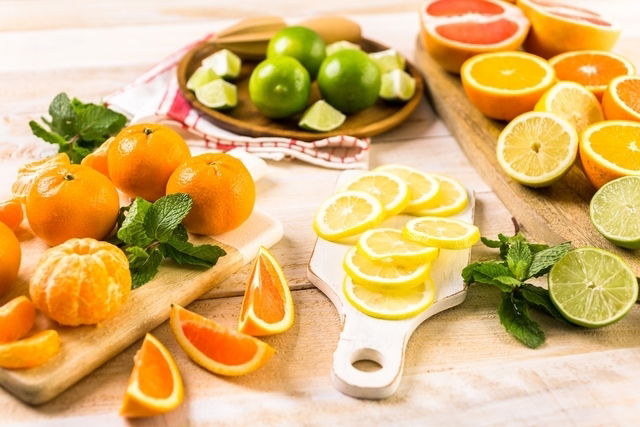Foods that are rich in vitamin C, like strawberries, oranges and lemons, help to strengthen the body’s natural defenses. Vitamin C helps to fight free radicals, which can be damaging if they start to accumulate. High levels of free radicals are associated with several disease.
Vitamin C should be regularly consumed, as this nutrient also helps with the absorption of iron in the intestine. It is often recommended as part of the treatment for anemia.
Vitamin C also helps with skin healing and boosts circulation, making it a great way to prevent cardiovascular disease, atherosclerosis and high blood pressure.

List of foods rich in Vitamin C
The following table outlines the quantity of vitamin C present in 100 g of each food:
Other foods that contain vitamin C, albeit in lower quantities, are lettuce, artichoke, melon, banana, spinach, avocado, apple, carrots, plums, pumpkin and beets. Ideally, you should consume these foods fresh and raw, or in smoothies.
Daily recommended dose of vitamin C
Recommended vitamin C doses depend on your age and sex. Women over 19 years old should consume 75 mg per day, while men over 19 should consume 90 mg per day.
There are some health conditions that require an even higher dose of vitamin C. For example, smokers should consume an additional 35 mg of vitamin C per day. Conditions like diarrhea, surgery, colds, pregnancy or breastfeeding can also prompt a need to increase vitamin C dosing.
When to supplement
Vitamin C supplementation is indicated mainly for those who have symptoms of vitamin C deficiency, like fatigue and bleeding skin or gums. These symptoms combined with a low level of vitamin C are indicative of scabies. Vitamin C supplementation can also be beneficial for:
- To prevent and treat bruises that appear from mild injuries
- Boost recovery following physical activity and help with gaining muscle mass
- Boost the body’s defense mechanisms to prevent colds and flus, as well as other illnesses
- Strengthen the bones, as vitamin C contributes to the production and absorption of collagen, which prevents the joints from weakening
Healthy people generally do not need to supplement with vitamin C, as adequate amounts of this vitamin can be easily consumed through a balanced and varied diet.
If supplementation is necessary, it should be guided by a doctor or registered dietitian.
How to maintain vitamin C in food
To maintain the vitamin C in food, it is important to avoid storing fruit without their peel, especially papaya, kiwi and oranges. If the inner fruit is exposed to fruit for a long time, the vitamin C content can start to decrease. Similarly, if you make orange juice or cherry juice, you should place it in a tightly sealed jar and store in the fridge, making sure to protect the juice from air and light exposure.
Vitamin C content in foods like broccoli, cabbage or peppers will reduce slightly when cooked. At very high temperatures, the vitamin C in these foods can become totally destroyed. To reap the most amount of vitamin C possible, you should try to consume these foods in their raw, natural state when possible.






























